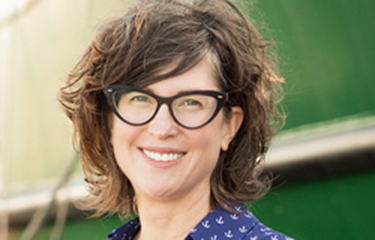A debate over the potential impact of climate change in a rapid deterioration of Alaska’s crab fisheries is taking a back seat to a clash over the issue of bycatch.
Closures of the Bristol Bay red king crab and Bering Sea snow crab fisheries have resulted in losses of USD 287.7 million (EUR 278.6 million) over the past two years for Alaska’s crabbers. Scientists have said warming waters may have played a role in the disappearance of billions of snow crab to from Alaskan waters, resulting in a 90 percent decline in population. It’s a point acknowledged by Alaska Bering Sea Crabbers (ABSC) Executive Director Jamie Goen. But she said fisheries managers need to focus on measures they can directly control.
“Crab aren't the only species experiencing declines in the Bering Sea, and they aren't the only species that would benefit from some strategic habitat protections in this uncertain time,” Goen told SeafoodSource. “With growing uncertainty and stressors on the food web, in part from climate change and in part from growing fishing pressure from fleets like pollock, one of the greatest tools we have for reinforcing resiliency in this entire ecosystem is habitat protection.”
In September 2022, ABSC submitted an emergency petition to the North Pacific Fishery Management Council (NPMFC), which manages Alaska’s pollock fishery, requesting a large swathe of the Bering Sea known as the Red King Crab Savings Area (RKCSA) and Red King Crab Savings Subarea (RKCSS) be closed to all fishing between 1 January and 30 June. The closure period would have coincided when the ABSC says crab are in a “vulnerable soft shell state of molting and mating.”
“Closed areas, like the RKCSA/RKCSS, are one management tool to help crab stocks rebound by creating habitat protections and reducing crab interactions with fishing gear,” Goen said. “We have asked all sectors to avoid the red king crab savings area, and the pollock industry has not complied. Other sectors have.”
The petition was denied by NOAA Fisheries on 20 January. In a public statement, the agency said available scientific data did not support the request for the closure and that the benefits would not “outweigh the value of advance notice, public comment, and deliberative consideration of the impacts on participants under the normal rulemaking process.”
While the council did not adopt any protection measures for red king crab, it made a recommendation to the U.S. Department of Commerce set the total allowable catch (TAC) for Alaska pollock in the Eastern Bering Sea at 1,300,000 metric tons for 2023; an increase of 16 percent from 2022, when the TAC was 1,111,000 metric tons.
Representatives of the pollock fishery said the proposed closures weren’t grounded in science, wouldn’t result in bringing salmon and crab back, and will have caused “irreparable economic and social harm.”
ABSC continues to claim pollock trawlers use nets larger than football fields and that their gear that makes contact with the ocean floor. If mid-water gear is on the ground, Goen said trawlers should not be allowed to fish in those designated areas.
“The data shows that it’s not mid-water, but it’s on the bottom. If it is true, why are they allowed in areas that are sensitive to crab habitat?” Goen said. “With mid-water trawl gear used to fish for pollock, which the science shows is on the bottom 40 to 100 percent of the time, regulators could require no bottom contact or minimal bottom contact and require it to be enforced through the use of bottom contact sensors on the net.”
The At-Sea Processors Association (APA), a group representing five companies that own and operate 15 pollock catcher-processor vessels, did not to respond to questions from SeafoodSource inquiring whether or how much their fishing nets are dragging on the bottom of the ocean floor, or whether it was considering mandating the use of bottom contact sensors as a measure to avoid potential disturbances to crab habitat.
In a statement, APA stressed the importance for “science-based” measures, while maintaining the focus should be on climate change for dwindling stocks.
“As U.S. fisheries are impacted by ocean warming and other climate stressors, management responses that are forward-looking and science-based are more critical than ever,” APA Executive Director Stephanie Madsen said. “APA will continue to advocate for and support management measures that where possible anticipate and effectively respond to current and future climate impacts.”
In a 5 December letter sent from APA to NOAA, the group laid out its case for opposing the proposed closures.
“Neither the ABSC petition nor the best scientific information available demonstrate that an emergency situation exists, that emergency action is justified, or that NMFS has an adequate administrative record upon which to base any emergency regulatory action,” APA said. “The best scientific information available clearly demonstrates that any impacts of Alaska pollock catcher-processor pelagic trawl gear on BBRKC and their habitat are temporary and minimal, in no way presenting a serious conservation or management problem in the fishery that could justify emergency action.”
Onboard observers have noted that incidental catch of Bristol Bay red king crab by pollock trawlers is extremely rare.
“Not once in the last decade have the BSAI Alaska pollock fleets taken more than 23 animals within the RKCSA in a calendar year,” the APA said.
The NPFMC is scheduled to meet in Seattle, Washington, U.S.A., from 7 to 13 February and again in early spring. For crab fishermen, there isn’t much optimism.
“The North Pacific Fishery Management Council has not yet taken meaningful actions to help Bering Sea crab stocks recover from this crisis and that's simply irresponsible,” Goen said. “If you ask any crab fisherman, they’ll tell you status quo management of Bering Sea fisheries is not working. Most crabbers I've talked with have lost faith in the council process.”
Photo courtesy of Alaska Bering Sea Crabbers







